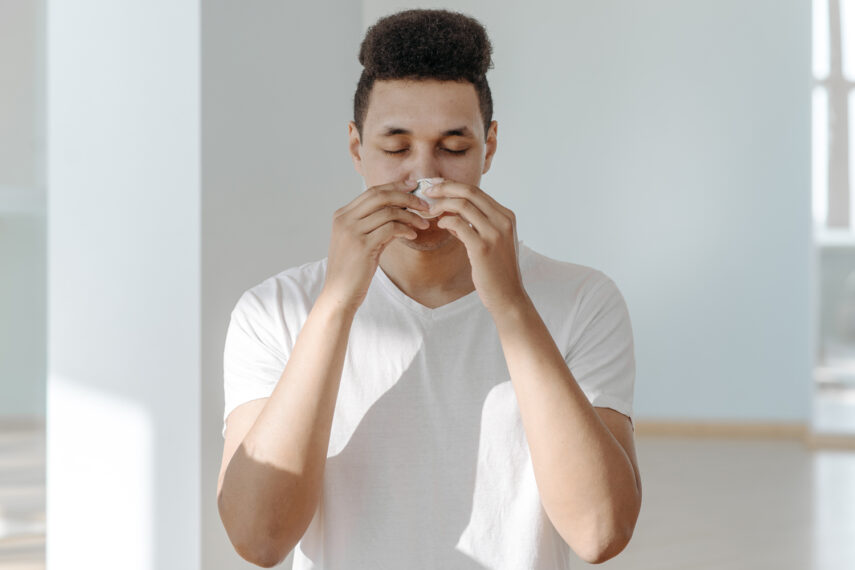
With the onset of summertime and rising temperatures, millions of people annually contend with summer allergies, also known as “hay fever” (allergic rhinitis). Summer allergies are allergy symptoms that are usually caused by pollen, mold, or other blooming plants. These allergies normally occur from the beginning of June until late September, causing constant sneezing and nasal congestion.
What causes allergies in the summer?
As soon as the warm weather arrives, people tend to go outside more often. As a result, your exposure to natural factors gradually increases, and some outdoor sources may cause summer allergies.
The most common allergens include:
- Summer fruits and vegetables: some seasonal fruit and vegetables share similar summer allergens as, for example, weeds and grasses. As a result, some people might be sensitive not only to outdoor summer allergens but also to some foods that are more prevalent in the summer.
- Grass pollen: grass pollens are the most generic allergens, and their types vary geographically. In Canada, the most common ones are Bermuda grass, Ryegrass, and Bluegrass.
- Insect bites: insect bites such as mosquitoes, certain bugs, fleas, and bedbugs can also cause allergies.
- Mold: molds that are found outdoors during the summer season can cause allergic reactions. Molds are weather dependent and some of them spread faster in warm weather.
- Mugwort: mugwort usually blooms towards the end of summer generating allergic reactions that occur towards the end of August up until early fall.
- Nettle: causes allergies when a person contacts the plant or inhales its pollen.
- Ragweed: ragweed plant is also one of the most common summer allergens, especially in late summer and early fall.
- Tree pollen: summer season is the best time for tree pollen to trigger allergic reactions. It blooms when the nights are slightly cold, and the days are warm. In Canada, some examples of tree pollens are Maple, Willow, Ash, Pine, Oak, and Birch trees.
Can hot weather affect summer allergies?
Indeed, hot weather and heat do make your summer allergies worse. During the summer, we usually spend more time in the water. One of the allergens that spreads in the water the most is mold. As mentioned before, mold is one of the more prevalent summer allergens. Also, on hot days the air is especially polluted which is a strong trigger for some allergies.
What are the symptoms of allergies in the summer?
Some summer allergy symptoms include:
- Sneezing
- Watering/itchy eyes
- Congested/runny nose
- Fatigue and headache
- Coughing
- Itchy mouth and scratchy throat (summer food allergies)
How do you prevent and treat summer allergies?
Allergies usually arise from active exposure to natural allergens. Some of the ways to prevent and treat summer allergies include:
- Wear a face mask when in close contact with the lawn.
- Take a shower and wash your face after spending time outside.
- Keep your car and home windows closed.
- Stay in when pollen levels are high (midday and afternoon).
- Use saline nasal irrigation to clear up congested nose.
- Use air humidifiers in your living spaces.
- Manage your stress levels.
- Get to know your triggers.
When should you seek medical attention for summer allergies?
Allergies may be very bothersome to some of us and in some cases even unmanageable. In these cases, you should consult a physician, especially if the symptoms become chronic.



